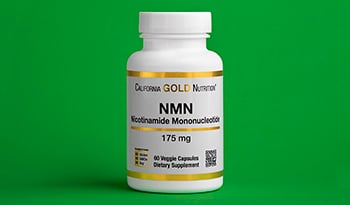Sådan øges knogletætheden: En videnskabsstøttet guide

Nøgletips
- Knoglesundhed handler ikke kun om calcium; det handler om en symfoni af næringsstoffer, der arbejder sammen.
- Øvelse er afgørende. Vægtbærende og styrketræningsøvelser er de mest effektive måder at stimulere ny knoglevækst på.
- Fokus på vigtige næringsstoffer. En diæt rig på calcium, D-vitamin og magnesium er grundlæggende for knoglesundhed.
- Livsstil betyder noget. Ved at omfavne en næringsrig kost, smart kosttilskud og en aktiv livsstil, kan du opbygge og vedligeholde stærke knogler for livet.
Sådan øges knogletætheden: En videnskabsstøttet guide
Bekymret for tab af knogletæthed? Den gode nyhed er, at du kan tage proaktive, naturlige skridt til at opbygge stærkere knogler i alle aldre.
Knoglesundhed er en hjørnesten i det generelle velvære, især når vi bliver ældre. Da osteoporose rammer millioner globalt, er det vigtigere end nogensinde at forstå, hvordan ernæring, livsstil og målrettede kosttilskud kan understøtte stærke knogler.1 Lad os undersøge, hvordan du naturligt kan nære dine knogler ved hjælp af evidensbaserede strategier og kraftfulde næringsstoffer.
Denne vejledning udforsker de mest effektive, evidensbaserede strategier til at forbedre din knogletæthed.
Hvad er knogletæthed?
Knogler er levende væv, der konstant gennemgår ombygning - en proces med nedbrydning og genopbygning. Dette dynamiske system er afhængig af en række næringsstoffer, hormoner og cellulære interaktioner. Når vi bliver ældre, især efter overgangsalderen, kan knogleresorption overgå dannelsen, hvilket øger risikoen for osteoporose.1,2
Nøgletilskud til knogletæthedsstøtte
Her er nogle essentielle næringsstoffer, der spiller en afgørende rolle i opretholdelsen af knoglestyrken:
- Calcium: Det mest kendte knoglemineral, men ikke alle calciumkilder er ens. Mikrokrystallinsk hydroxyapatitkoncentrat (MCHC) tilbyder biotilgængeligt calcium sammen med spormineraler og organiske faktorer som kollagen og vækstfaktorer, der understøtter knogledannelse.3,4
- D-vitamin: Forbedrer calciumabsorptionen og regulerer knogleomsætningen. Mangel er almindelig hos ældre voksne og forbundet med øget risiko for brud.2
- Magnesium: Understøtter knoglematrixkvalitet og calciummetabolisme. Mangel kan forringe knogledannelsen og øge skrøbelighed.5
- K-vitamin: Vigtigt for knogleproteinmetabolisme og har været forbundet med forbedret knoglemineraltæthed.5
- Spormineraler: Zink, kobber, mangan, bor og silicium bidrager til knoglematrixdannelse og styrke.5
Avancerede næringsstoffer til støtte for knogletæthed
- MCHC (mikrokrystallinsk hydroxyapatitkoncentrat): Et helt knogleekstrakt, der giver calcium, fosfor, magnesium og spormineraler i naturlige forhold. Det indeholder også kollagen og vækstfaktorer, der stimulerer knogledannelse og hæmmer nedbrydning. Humant klinisk forskning har vist, at MCHC er bedre end andre former for calcium til forbedring af knogletætheden hos menopausale kvinder med knogletab.3,4
- Ipriflavon: Et derivat af isoflavoner vist at reducere knogletab og forbedre knogletætheden hos postmenopausale kvinder.6
- THIAA & Berberine: Disse naturlige forbindelser modulerer inflammatoriske veje og understøtter knogleombygning. Kliniske undersøgelser viser, at de kan reducere knogleomsætningen og forbedre knogledannelsesmarkører.7
Kost- og livsstilstips til stærke knogler
- Regelmæssig vægtbærende træning er en af de mest effektive måder at stimulere knogledannelse på.1
- Vægtbærende aktiviteter: Hurtig gang, jogging, tennis og dans.
- Styrketræning: Løft vægte eller brug af modstandsbånd.
- Spis en afbalanceret diæt med lavt syreindhold rig på grøntsager, frugter og sunde fedtstoffer som olivenolie.
- Begræns indtagelse af koffein, alkohol og forarbejdede fødevarer, der kan øge calciumtabet.1
- Deltag i regelmæssig vægtbærende træning for at stimulere knogledannelse.
- Undgå rygning og overdreven saltindtagelse, hvilket kan påvirke knogletætheden negativt.
Klinisk indsigt + Forskningshøjdepunkter
Undersøgelser viser, at kombination af en middelhavsstil diæt med kosttilskud som MCHC, THIAA, berberin og vitamin D & K kan forbedre knoglemodelleringsmarkører betydeligt hos postmenopausale kvinder. Disse interventioner hjælper med at reducere knogleomsætningen, øge knogledannelsen og understøtte den samlede knoglematrixintegritet.7
Ofte stillede spørgsmål (FAQ)
Kan du virkelig vende tab af knogletæthed?
Selvom du ikke altid kan vende det fuldstændigt, kan du betydeligt bremse knogletabet og i mange tilfælde forbedre din knogletæthed gennem konsekvent kost, motion og livsstilsændringer. 1
Hvor lang tid tager det at øge knogletætheden?
Forbedring af knogletætheden er en langsigtet proces. Det kan tage mindst 6-12 måneders konsekvent indsats at se målbare ændringer på en DEXA-scanning.3
Hvad er den bedste ting at gøre for knogletæthed?
Konsensus er, at regelmæssig vægtbærende træning og modstandstræning er den mest kraftfulde stimulans til opbygning af nye knogler.1
Referencer:
- NIH konsensuskonference. Osteoporoseforebyggelse, diagnose og terapi. JANUAR 2001; 285 (6) :785-795.
- Holick MF. D-vitamin og knoglesundhed. J Nutr. 1996; 126 (4 Suppl): 1159S-1164S.
- Reid IR, Ames RW, Evans MC, Gamble GD, Sharpe SJ. Effekt af calciumtilskud på knogletab hos postmenopausale kvinder. N Engl J Med. 1993; 328 (7) :460-464.
- Stepan JJ, Mohan S, Jennings JC, m.fl. Kvantificering af vækstfaktorer i ossein-mineralforbindelse. Life Science 1991; 49 (13): PL79-PL84.
- Saltman PD, Strause LG. Spormineralernes rolle i osteoporose. J Am Coll Nutr. 1993; 12 (4): 384-389.
- Agnusdei D, Bufalino L. Effekt af ipriflavon ved etableret osteoporose og langsigtet sikkerhed. Calcif Tissue Int. 1997; 61 (1 Suppl): S23-S27.
- Forskningscenter for funktionel medicin. Resumé af Healthy Menopause I Trial. 2008.
ANSVARSFRASKRIVELSE: Wellness Hub har ikke til hensigt at stille diagnoser...
















































































 Indholdsfortegnelse
Indholdsfortegnelse














